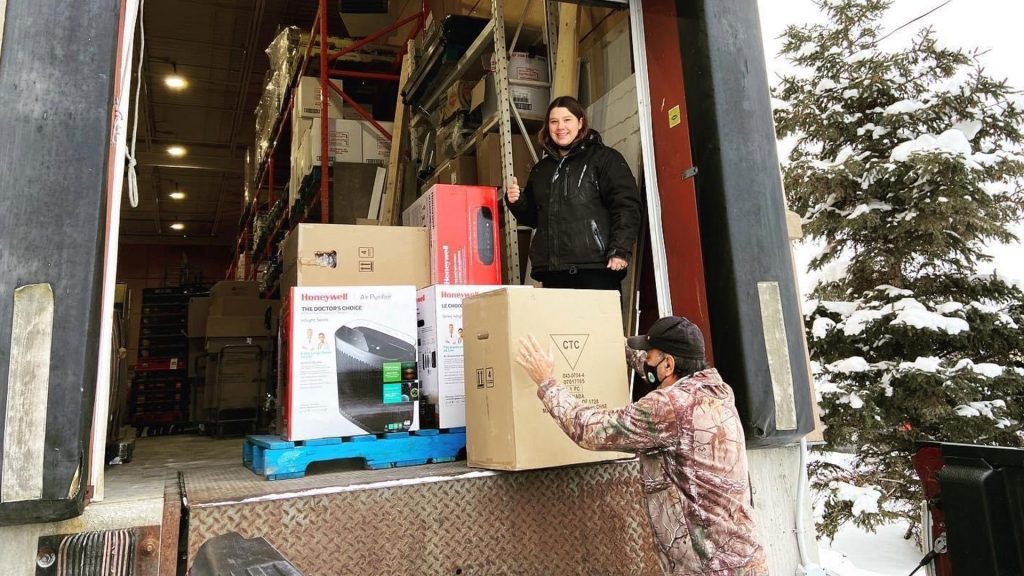
Former Nishnawbe Aski Nation grand chief Charles Fox says the community of Bearskin Lake was expecting a much quicker and better response from the federal government to help with the COVID-19 outbreak.
“Total indifference to the First Nation’s situation; I expected more of a human response,” says Fox, who is from Bearskin Lake. “To say, ‘We’re here for you, truth and reconciliation. We’re here, we’re going to live up that mantra,’ not evident.”
He adds this has only served to further damage an already fractured relationship between the local community and Ottawa.
After waiting more than a week, there is now military personnel in Bearskin Lake but community leaders say the government has failed to deliver on what was requested.
According to Indigenous Services Minister Patty Hajdu, seven members of the Canadian Armed Forces are on the ground in Bearskin Lake, a fly-in community 625 km due north of Thunder Bay, Ont., to assist the community that at one point, had infected half of the community according to Chief Lefty Kamenawatamin.
Annie Cullinan, a spokeswoman for the federal department called Emergency Preparedness, says the Rangers are there to co-ordinate, help with logistics, and distribute food, water, firewood and care packages and more will be sent in the coming days, with the initial deployment set to last until Jan. 23, though it could be extended.
According to Cullinan, the Rangers will also conduct community wellness checks and assist in establishing a local isolation area.
However, Canadian Rangers are part-time reservists and the ones who have been activated were already living in the local community.
NDP MPP Sol Mamakwa represents the area in the Ontario legislature.
He agrees the Trudeau government is not living up to Bearskin Lake’s request for outside military help.
“It’s wasn’t right for the government to say they had boots on the ground without really having boots on the ground,” Mamakwa says. “It’s been done to First Nations time and time again – for decades, for centuries – where governments say things in public without really anything happening.”
Read More:
COVID-19 crisis has Bearskin Lake at breaking point: Chief
The community has requested the assistance of 40 personnel. The chief says they may need help for up to six weeks.
Kamenawatamin said the community needs more support quickly. The few there now are not enough to support the small local group of volunteers that are delivering basic supplies to about 50 homes where people are isolating.
Bearskin Lake First Nation officials declared an emergency in the community in late December and they formally requested military assistance from Ottawa last week.
“A quick response would have been good, would have been better,” Kamenawatamin said.
Kamenawatamin said he tested positive for COVID-19 on Saturday and he is now in isolation.
“I’m feeling a little better this morning … yesterday was kind of rough,” he said in an interview on Monday.
As Bearskin Lake First Nation continues to deal with a very challenging COVID outbreak, it is relieving to see active cases decreasing as supports continue.
Here is a summary of some of the latest work underway ⤵️ pic.twitter.com/9oVcYrREDi
— Patty Hajdu (@PattyHajdu) January 11, 2022
Indigenous Services Canada says it has flowed about $1.2 million in financial aid to Bearskin Lake since the COVID crisis began.
The department says it has also helped coordinate other supports such as nurses, personal protective equipment (PPE), rapid testing kits and security staff.
A total of 210 people were infected with COVID-19 in the 400-person community, but late Hajdu tweeted this number now stands at 65 active cases.
Hajdu also said there have been no hospitalizations related to the outbreak.









